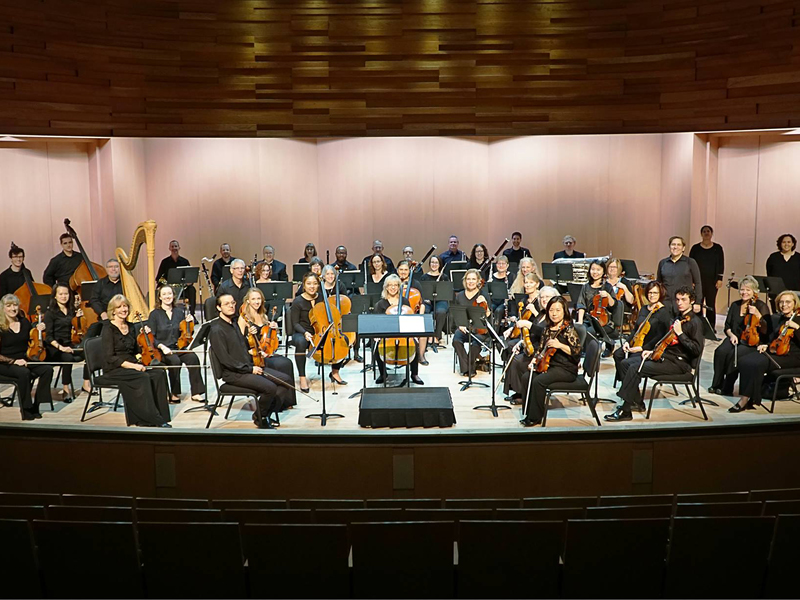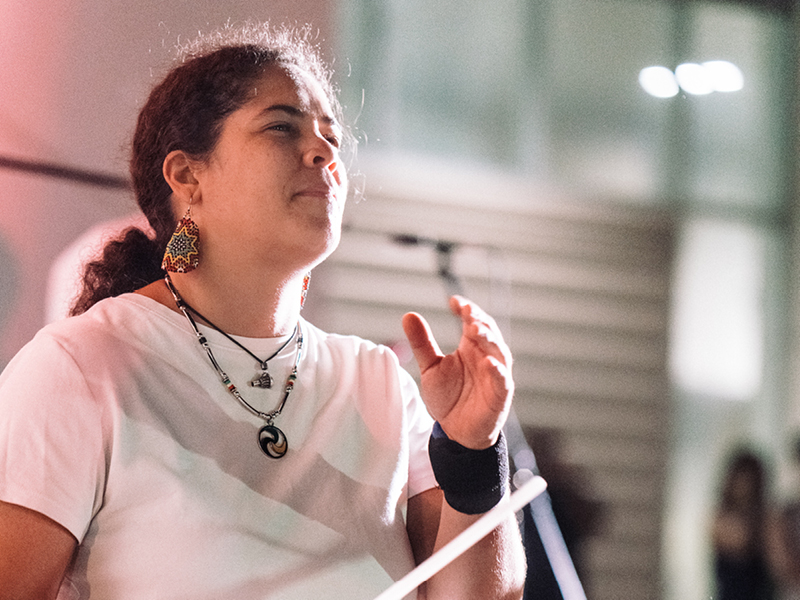Redefining “Classical”
Joy filled the space as Warren Cohen, Lisa Tharp, Sonja Branch, and Arouna and Zaza Diarra appeared in the Zoom meeting. This small group represents members of AZ63’s ensemble and the MusicaNova orchestra. We gathered online to discuss the upcoming MusicaNova Classical Lounge series: Burkina Dreams in the Desert, a light and lively showcase of classical artists of color.
The virtual meeting room was warm with connection and genuine gratitude, as musicians have found it difficult to connect with one another and their audiences as they navigate social distancing and digital performance.
“This has been a lesson in gratefulness. I miss the sense of the big group on the stage as a team, bringing this experience together for the audience. I’m lucky to have that to look forward to,” said Lisa Tharp, MusicaNova Chamber Winds.
Despite ongoing separation, this past year of the COVID -19 pandemic has sparked new curiosity and fresh appreciation for each musician and their craft. The group discussed the joy of rekindling a love for instruments they hardly touch anymore and honing their skills with greater specificity as they take on fewer commitments. Arouna Diarra reflected on the beauty of crafting instruments and sending them to people—a gift of creative practice. They also discussed challenges of virtual space, and the new skills they have acquired in order to perform online.
Everyone seemed eager to return to live, in-person performances, bringing with them a deep appreciation for the work they do and art they create. This does not come without challenges, as communities are shaken by the limitations of the pandemic and awakened by calls to social and racial justice. From socially distant performances that include blocking and limited capacities on-stage to the increasing influence and reach of smaller scale world music. Warren Cohen is hopeful for the future of the classical landscape:
“I think there will be a change in the music, in what people listen to. There will be more world music. I think there’s going to be a much bigger audience for that because of the pandemic. [Artists] have been able to find ways to connect with people that [they] didn’t have before,” said Warren Cohen.
With entertainment being stripped down by the pandemic, it seems that the art lover’s hunger for new experience is growing more insatiable. Paired with greater attention to expanding one’s cultural education, there is an increase of curiosity that provides opportunities where audiences are excited to hear new music, and explore the traditional sounds of places they never would have otherwise investigated.
There is also a glow of anticipation surrounding live, in-person performance once again among the group. Arouna Diarra continually expressed deep longing to see the joy that their music brings to people. He describes the challenge to perform disconnected from their audience in digital space:
“It doesn’t feel real to me,” said Arouna Diarra. “[With an audience], the magic comes out.”
This interactive element of AZ63’s work is essential. In-person interaction allows them to challenge the audience to reframe their understanding of “Classical” music and explore new sounds, languages, and cultures through personal engagement. Zaza Diarra explains:
“Most of our songs are in a different language. It’s really fun to get someone to say something they can repeat with you; I get more fun just getting the audience interacting with us than playing just trying to smile,” said Zaza Diarra.
Zaza Diarra also plays a major role in guiding the audience with translations, opening the door for them to empathize and connect with the work being performed. When this kind of connection is inherent to the music, virtual settings cannot do it justice. The performance by AZ63 calls for deeper connection to humanity and can only be authentically experienced in community. Whether it is the translation of a song, a call and response, or introduction of an instrument, the audience is continually met with a generous invitation to discover Burkina Faso, the African Diaspora, and beyond.
“I would argue that what Arouna is bringing is the classical music of a different culture, of a different country. He’s 12th generation (or more) of what he’s doing—an oral historian predating common history. A lot of the repertoire is of the Bombara people and Burkina Faso. It’s a classical music of a different kind, telling a different story,” said Sonja Branch.
No Boundaries carries the same challenge to redefine Classical music as the audience is guided through an experience specially curated to be a gentle introduction to lesser known, newer works. Lisa Tharp shares her hope for the performance:
“We are looking forward to expanding people’s preconceived notions of what ‘serious’ music is. . . . We’re not playing any modern music that is ‘scary’ or ‘atonal,’ but we’re playing unfamiliar things, daring the audience to find the enjoyment of it. . . . I’m really hoping to give them new sounds to think about and maybe develop new fans of more recently written music,” said Lisa Tharp.

The anticipation builds as the artists take great care creating the experience of live, in-person music, understanding the power of collective breath and shared space to ease the potential discomfort of experiencing something new. It is in that space that joy and appreciation for the “different” becomes tangible, becoming a warm invitation to be moved by the unfamiliar. The MusicaNova Classical Lounge series offers a delightful space to reframe our existing ideas of classical music through the exploration of culture, sounds, and genuine human connection.

